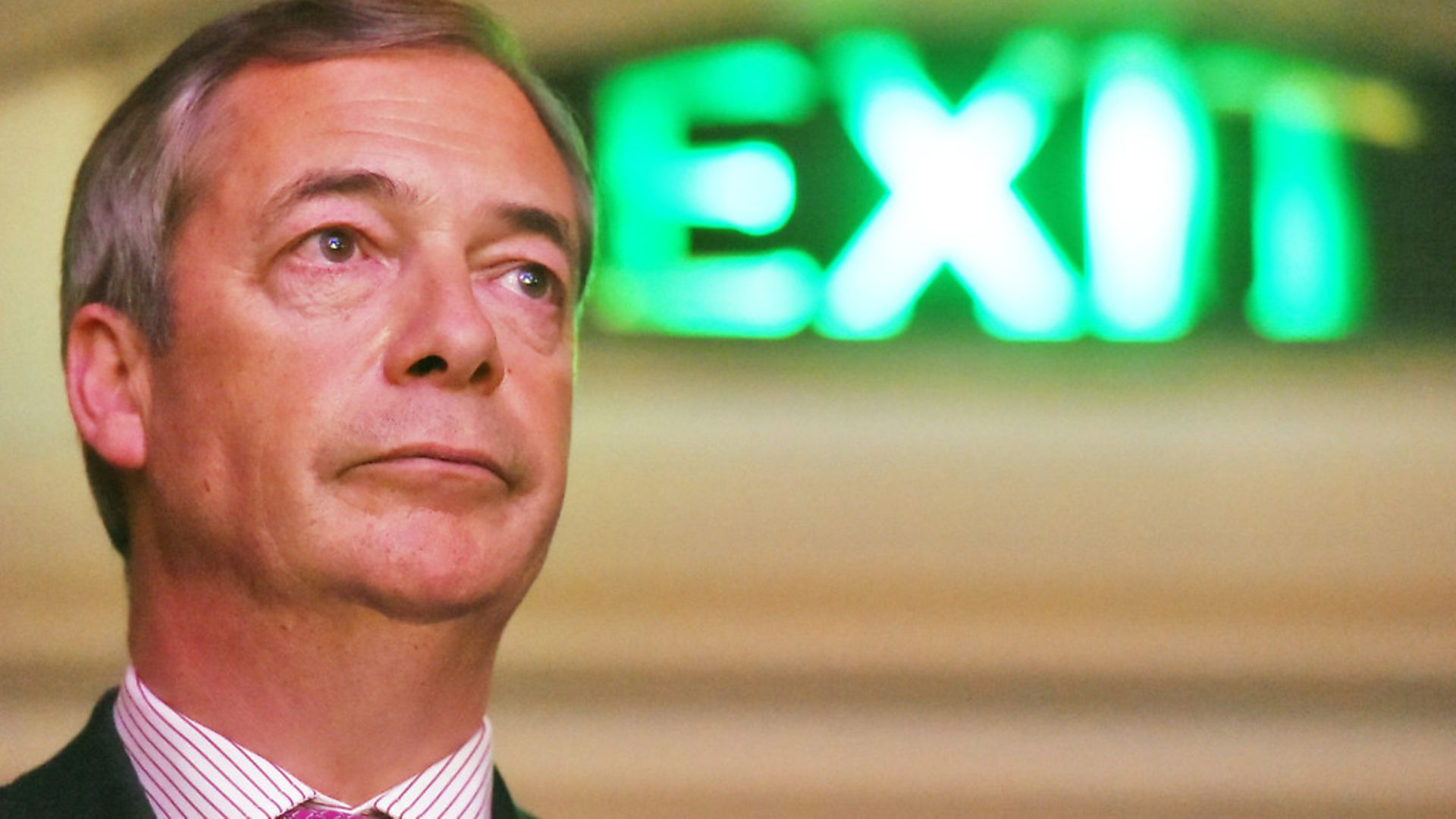
Ex-UKIP aide GAWAIN TOWLER on the prospects for the new Brexit Party, set up with the blessing of his former boss, Nigel Farage
Since the 2016 referendum, 110 political parties have been registered with the Electoral Commission. Many are locally-focused, like the Wigan, Standish, Shevington, Bryn, Hindley Independents, created this month. Others are rather more esoteric, like the Arts Party, registered in 2017 and with the glorious slogan ‘Earth without art is just Eh’.
Some are a direct response to the referendum itself. From the Remain side, for instance, comes Viva Europe, while from those continuing the fight for Brexit, we have For Britain, One Nation and the Time Party, to name just three. The latest addition to this smorgasbord of democracy is the Brexit Party.
Why is this morsel different from the others? And will it make a significant contribution to British politics and to Brexit? As someone who spent more than a decade in eurosceptic politics as a UKIP aide I rather suspect that it might.
The party might have had some teething problems – and a shadow cast over it by some less than ideal comments made by founder Catherine Blaicklock on race and religion – but it has a notable backer: my old boss, Nigel Farage. Since the party was registered last week, he has used a column in the Telegraph and a couple of minutes on his LBC shows to reference it, and has promoted it through social media. It would be foolish to ignore one particular tweet, which received more than 6,500 likes and almost 3,000 retweets in just six hours. Many dismiss this new venture, not least the current UKIP leader Gerard Batten, who described the party as a vehicle for ‘Mr Farage and his cronies’ to get back ‘in the limelight on the gravy train’. He said it was an ‘Establishment safety valve to dupe voters. ‘Tories in Exile in Brussels’ about sums up its purpose’.
Plenty of those from the larger parties are equally dismissive. But I think they would be wrong to discount its possible impact. Within three days, the party’s website had received 45,000 registrations. So far, it is not a membership organisation and no money is being asked of those showing an interest. But if a campaign needs to be fought, there are the numbers to fight one. And this is the whole point of the Brexit Party. Its purpose is to apply pressure to the government not to extend Article 50, reckoning – with good reason – that if the UK actually leaves the EU on March 29 then the genie of independence will be released, and it will be nigh on impossible for to overturn that decision.
Running a political party is hard work, particularly a start-up, as anybody with experience of setting up a charity or business will tell you. Nigel is enjoying his semi-retirement, being an MEP and presenting his radio show in between speaker trips and writing the odd article. But he has also made clear, from the moment the Tories selected a Remainer to succeed David Cameron that if, in his estimation, the Brexit result was ‘betrayed’ then he would return to active politics. Nigel has been very clear privately that there is the money to fund this party, but as promissory notes.
Frankly, nobody involved wants this party to actually become a thing. For it to do so, would mean that the pass had been sold and the UK was unlikely to leave the EU on time and on reasonable terms. In those circumstances, it would launch into action – starting off with May’s European elections.
Imagine you are the sort of person with the wherewithal to effectively fund an election campaign. Rather than writing a cheque to the Brexit Party, or Nigel Farage esq. you would probably prefer a new pair of shoes, maybe a car, or to support your children through university. As Brexiteers see it, why should we have to fund something that has already been funded; why should we campaign on something that has already been campaigned on – and won? But, if forced, we will return to the fray.
The Brexit Party, therefore, represents a great threat to the established parties. Its threat is existential, in the first instance, just that – a warning, from the sidelines, to politicians still attempting to thwart Brexit, of what can be mobilised if required. Then, if needed, its electoral threat would be immense. The likelihood is that this new party, created solely with the intention of fighting a European election that by rights should never happen, would cream it.
UKIP has taken a different path under Batten and no longer leads the debate on Brexit as it once did. The party would still, largely through inertia and branding, pick up between 8-15 out of the 73 seats available to the UK. But it is hard to see Labour or the Conservative building on their results of 2014. The Lib Dems should improve on the single seat they won, and the Greens could take a handful. But, in a forced election, contrary to the result of the referendum, what are the odds on Nigel using the vote to give the disappointed Leave majority of 2016 an opportunity to send a very strong, very pertinent message to the powers that be?
Andrew Adonis, of this parish, understands this. As he wrote: ‘The big issue for Farage’s party is if he gets to fight an election before Brexit is resolved… I think he will do very well.’
It will only happen if Brexit isn’t resolved before the European elections. Now, what are the odds on that?
Gawain Towler is UKIP’s former head of media; he now runs CWC Strategy, a PR and reputation management consultancy
Brex Factor – Page 20








